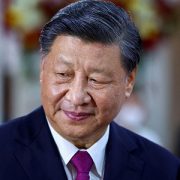A geopolitical whirlwind has just started, following the consequences of the spread of the coronavirus, which is grinding global economies to a halt and crashing markets. The virus is changing the world as we knew it.[1]
Tempest on the large Mediterranean
The whole of Italy was put in a lockdown on March 9th, making it the first country following China’s example of closure of January 23rd. But China’s economy is relatively sealed, as its currency is not freely exchangeable. Italy conversely is part of a major partner of the Eurozone and it is fully integrated in the global market. The consequences of this closure could be larger internally and externally.
Geopolitical clashes are gaining a momentum of their own, and it’s unclear whether it will stop even when, possibly in one year, the vaccine will be available and life should go back to normal.
Saudi Arabia on March 8th dropped oil prices to regain market share from Russia, which had refused to slash production in the face of shrinking oil demand because of the economic slowdown caused by the virus.
Moscow claims it can survive lower prices, although its extraction costs are far higher than Saudi Arabia’s, and aims to undercut US shale production, which needs higher fees to be profitable. Growing US shale production was also part of an attempt to make the new pipeline between Russia and Germany, the Nord Stream 2, too expensive and thus not viable.
Moreover, Turkey, strongly linked with the Saudis, is pressing the Russians in Syria, while Damascus’ other strong ally, Iran, is faltering with the unchecked spread of the coronavirus, the impact of sanctions, and lower oil prices hitting its main export.
Certainly, low oil prices hit a lobby backing US president Donald Trump, and by crashing the markets it increases the possibility of a recession and thus undermines the chances of Trump’s reelection. Trump was banking on booming markets to get a second term.
Therefore, a new wide front of attrition is opening with the US siding with Saudi Arabia and Turkey, while Russia is backing Iran on a front going from Central Europe to Central Asia and passing through the Middle East.
The European Union is not faring much better. It still has not digested Brexit, and it is knee-deep in fierce controversies over what policies should be adopted to counter the mounting spread of the coronavirus. As the contagion is spreading in Italy, neighboring countries are closing borders for fear of the spread of infection. The EU is rapidly becoming a shadow of its old self. Each country is becoming increasingly isolated from one another, and there is so far no consensus on united approach about countering the virus or the economic consequences of the infection. Recession in fact is already kicking in.
China’s spinning head
The world may be used to these tensions, although not in this scale, yet it is Asia that is rocking more dangerously. There are new strains between China and India.
China’s COSCO cargo ship Dai Cui Yun, bound for Pakistan, was detained by Indian security at a port in Gujarat, India, on February 5, with Indian authorities claiming that the vessel was transporting material that could be used to make nuclear missiles. This is the latest event in a series of bilateral tiffs.
The Chinese press reported: «To consolidate its supremacy in South Asia and the Indian Ocean, India not only has resorted to every means to discredit, isolate, and crack down on Pakistan, but also has been trying to act as a “police officer” in the Indian Ocean. Last year, the Indian Navy blatantly expelled a Chinese scientific research vessel on the high seas near the Andaman Islands, and this year India created an excuse to seize the Da Cui Yun vessel. China must firmly counter India’s provocative actions, and Chinese companies must seek compensation through legal channels».[2]
Then there is Taiwan. The Kuomintang (KMT), which ruled China for some 30 years and Taiwan for more than 50 – and until now the bulwark of good bilateral ties with Beijing in the island – elected a new chairman set to discard a policy signed in 1992 that Beijing regards as a precondition for dialogue.
Moreover, Taiwan used a cocktail of AI, moral suasion, and transparency to stem the infection tide. Within the last five weeks, the Taiwan epidemic command center rapidly implemented 124 action items, including border control from the air and sea, case identification using new data and technology, quarantine of suspicious cases, educating the public while fighting misinformation, negotiating with other countries, and formulating policies for schools and businesses to follow.[3]
That is, Taiwan controlled the epidemic while keeping society free and democratic. Then it proved to the world and to China that the infection could be beaten without recourse to the strict measures put in practice for the whole Chinese population in quarantine so far. This plus the ongoing sentiment in Hong Kong, which scares Taiwan’s people, means that de facto all hopes for positive reunification with Taiwan are disappearing. Beijing would need to confront soon this reality.
On Monday, the markets crashed, and the US and the world are set for a massive recession. This will accelerate the ongoing production decoupling between US and China.
The world to which China was accustomed is going away. The US and the rest of the world are shocked but culturally they could be better prepared to face the new situation. Market crashes came before, crisis in Europe, the Middle East or Central Asia also are part of the mental landscape in Washington of Brussels. But the world China knew and in which it thrived in the past 40 years is rapidly falling apart.
This is totally new for Beijing, it is not something it wanted and not something was ready for, or even something to which past experiences could be of much help, Maoist China was closed to the outside world, and before that China was removed from global affairs. China needs a new way of thinking about itself and the world. The practical solution should be – adopt the current, western way of thinking of the world. But it’s unclear whether it will happen, how and when.
[1]See also http://www.settimananews.it/politica/an-evil-triplet-of-change/
[2]https://www.globaltimes.cn/content/1181914.shtml
[3]https://fsi.stanford.edu/news/how-taiwan-used-big-data-transparency-central-command-protect-its-people-coronavirus





